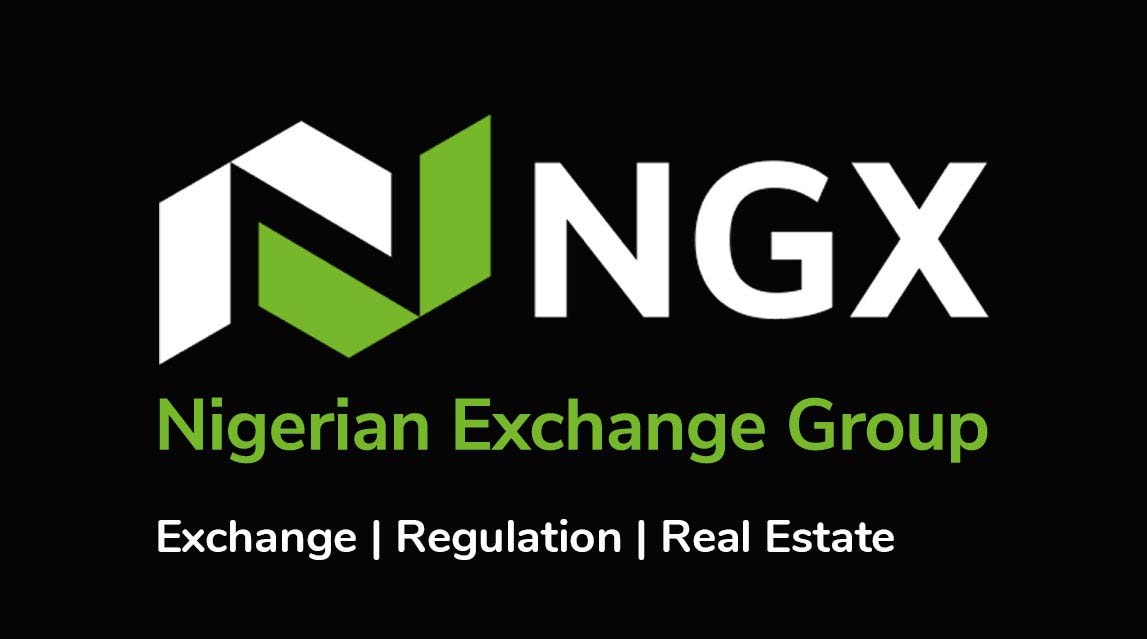Business
Accountability & Transparency: NNPC becomes EITI partner, set to publicly disclose taxes and payments


GMD NNPC Engr. Mele Kyari and the Executive Secretary of NEITI, Waziri Adio during their meeting at the NNPC Towers Abuja recently.
EITI Board Chair, Rt Hon. Helen Clark, welcomed the company’s commitment to the EITI: “NNPC plays a vital role in Nigeria’s economy. Joining the EITI as a supporting company is a welcome step in the NNPC’s journey towards achieving greater transparency and to help ensure that Nigeria’s citizens benefit from their natural resource wealth.”
Business
Global Money Week: NGX, CBN, MinieMoney Preach Financial Literacy To Students

As part of activities in commemoration of the 2025 Global Money Week, the Nigerian Exchange Group (NGX Group) collaborated with the Central Bank of Nigeria (CBN) and MinieMoney to empower over 200 students with essential financial literacy skills.
Biztellers reports that the initiative underscores a shared commitment to fostering financial inclusion and equipping young Nigerians with the knowledge required for long-term financial well-being.
The event convened students from leading schools, including Vivian Fowler Memorial College for Girls, Dansol High School, Kith and Kin Educational Schools, Caleb British International School, Lagos Preparatory and Secondary School, and The Bells Comprehensive Secondary School.
ALSO READ: Tinubu Swears In Ibas As Rivers Sole Administrator
The participants engaged in insightful discussions on financial literacy, investment strategies, and capital market operations, with the added opportunity to experience firsthand the dynamics of the NGX trading floor.
Now in its 13th edition, Global Money Week is a global initiative designed to promote financial education among young people, ensuring they develop the critical thinking skills needed to make informed financial decisions. The 2025 theme, “Think Before You Follow, Wise Money Tomorrow,” reinforces the importance of strategic financial planning from an early age.
At the event, Head of Trading and Products at NGX, Abimbola Babalola, highlighted the transformative power of financial literacy in shaping students’ futures.
“The financial choices you make today will determine the quality of your life tomorrow. Understanding saving, investing, and responsible money management early on will put you on the path to financial success,” he stated.
On his part, Assistant Director of the Consumer Protection Department at CBN, Christian Mordi, introduced the CBN’s ‘Sabi Money’ platform, designed to enhance financial education nationwide.
“Financial literacy extends beyond numbers; it is about developing discipline, patience, and informed decision-making skills that foster economic security,” he noted.
Similarly, the CEO, MinieMoney, Gbolahan Faniran, emphasized the importance of early investment habits and leveraging the power of compound interest. “Achieving financial success is not about following trends but about making intentional money choices today that ensure a secure future,” he said.
Beyond this event, the NGX Group continues to champion financial literacy through strategic initiatives, including its X-Academy, which provides tailored financial education programs, and the NGX StockTown, a comic book series designed to educate young people through engaging storytelling.
Through partnerships like these, NGX Group remain steadfast in its commitment to raising a generation of financially literate and empowered individuals. By equipping students with essential financial knowledge today, the initiative lays the foundation for informed decision-making and long-term wealth creation, ensuring a more financially inclusive future.
Business
JUST IN: Dangote Refinery Suspends Fuel Sales In Naira

The Dangote Petroleum Refinery has announced a temporary suspension of petroleum product sales in Naira, citing a misalignment between its sales proceeds and crude oil purchase obligations, which are currently denominated in U.S. dollars.
In a statement issued on Wednesday, the refinery explained that its sales in Naira had exceeded the value of Naira-denominated crude it had received.
As a result, the company said it was necessary to adjust its sales currency to align with its crude procurement requirements.
The refinery also addressed online reports alleging that loading activities had been halted due to ticketing fraud.
Dismissing the claims as “malicious falsehoods,” Dangote Refinery assured stakeholders that its systems remain robust and that no fraudulent activities had occurred.
The statement reads, “We wish to inform you that, Dangote Petroleum Refinery has temporarily halted the sale of petroleum products in Naira. This decision is necessary to avoid a mismatch between our sales proceeds and our crude oil purchase obligations, which are currently denominated in U.S. dollars.
“To date, our sales of petroleum products in Naira have exceeded the value of Naira-denominated crude we have received. As a result, we must temporarily adjust our sales currency to align with our crude procurement currency.
“Our attention has also been drawn to reports on the internet claiming that we are stopping loading due to an incident of ticketing fraud. This is malicious falsehood. Our systems are robust and we have had no fraud issues.
“We remain committed to serving the Nigerian market efficiently and sustainably. As soon as we receive an allocation of Naira-denominated crude cargoes from NNPC, we will promptly resume petroleum product sales in Naira.
It added “We appreciate your understanding and cooperation during this period”.
Business
Gold Hits Record $3,045 As Global Tensions Rise

Stock markets in Europe and Asia showed mixed performances on Wednesday, while gold reached a historic high, surpassing $3,045 per ounce.
The rise in gold prices was driven by renewed geopolitical concerns and trade uncertainties, following a tech-led selloff on Wall Street on Tuesday.
Investors turned to gold as a safe-haven asset after Israel carried out its most intense airstrikes on Gaza since a ceasefire with Hamas took effect.
Despite the escalation, oil prices edged lower as Hamas signaled openness to negotiations and urged international intervention for a truce.
READ ALSO: OPEC Reports Significant Global Market Shifts As Dangote Refinery Exports Fuel
The U.S. Federal Reserve is expected to maintain its interest rate pause as it navigates economic turbulence linked to former President Donald Trump’s shifting tariff policies.
Many economists warn that the ongoing trade disputes, along with retaliatory measures from affected nations, could push the U.S. and other economies toward recession.
In Europe, markets showed varied trends, with London’s FTSE 100 and Frankfurt’s DAX dipping slightly, while Paris’ CAC 40 registered a gain.
Official data from the eurozone revealed that inflation slowed to 2.3% in February, a minor revision from the previously reported 2.4%, largely due to moderating consumer prices in Germany.
Asian markets also fluctuated, with Japan’s Nikkei 225 reversing earlier gains to end lower after the Bank of Japan opted to keep interest rates unchanged.
The central bank cited “high uncertainties” in the global economy, particularly concerning trade.
Meanwhile, Indonesia’s stock market attempted a mild recovery after Tuesday’s sharp decline of more than 7%, its biggest drop since 2011, amid concerns over weak consumer spending.
Political and Economic Pressures Mount
In Moscow, Russia accused Ukraine of attempting to “derail” agreements between President Vladimir Putin and former U.S. President Donald Trump aimed at halting strikes on energy infrastructure.
In Turkey, the lira plunged to an all-time low of 39 per dollar following a police raid on the home of Istanbul’s opposition mayor, Ekrem Imamoglu.
His detention over a corruption probe was condemned by his CHP party as a “coup,” adding to concerns over political stability in the country.
As U.S. markets prepared to reopen, analysts predicted a cautious session.
Susannah Streeter, head of money and markets at Hargreaves Lansdown, commented: “The S&P 500 is set to open flat, amid high caution ahead of the crunch central bank decision.”
She added, “The Fed is widely expected to keep interest rates on hold, but investors will be hanging on [Fed chief] Jerome Powell’s words about future rate cuts. The tide has turned, with even the prospect of lowering borrowing costs unlikely to provide much solace given that they would be seen as indicating increasing weakness in the US economy.”
Key Market Figures (as of 10:30 GMT):
London – FTSE 100: ↓ 0.1% (8,696.72)
Paris – CAC 40: ↑ 0.5% (8,154.74)
Frankfurt – DAX: ↓ 0.1% (23,351.57)
Tokyo – Nikkei 225: ↓ 0.3% (37,751.88)
Hong Kong – Hang Seng: ↑ 0.1% (24,771.14)
Shanghai – Composite: ↓ 0.1% (3,426.43)
New York – Dow: ↓ 0.6% (41,581.31)
Currencies & Commodities:
Euro/Dollar: ↓ $1.0898
Pound/Dollar: ↓ $1.2969
Dollar/Yen: ↑ ¥149.73
Gold: ↑ $3,045 per ounce
WTI Crude Oil: ↓ 0.4% ($66.50 per barrel)
Brent Crude: ↓ 0.3% ($70.33 per barrel)



















